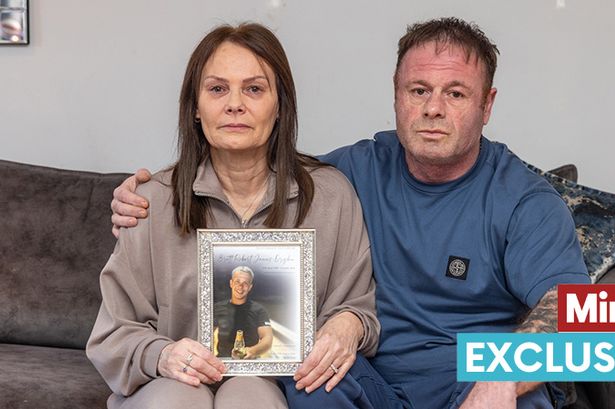The tragic death of Brett Dryden in Goa, India, has left his mother, Sandra, consumed by grief and suspicion. Brett, a 32-year-old British citizen, was discovered lifeless in a rented flat with a significant head injury, prompting an immediate investigation by Goan authorities. However, Sandra Dryden alleges that the subsequent handling of the case has been marred by inconsistencies, lack of transparency, and what she believes is a deliberate attempt to downplay the circumstances surrounding her son’s death to protect the region’s vital tourism industry. Her concerns revolve around several key aspects of the investigation, including the initial classification of Brett’s death, the apparent lack of thorough forensic examination, discrepancies in witness statements, and the perceived reluctance of local police to pursue certain lines of inquiry. Fueled by her unwavering belief that her son’s death was not accidental, Sandra has embarked on a relentless crusade for justice, demanding a more thorough and impartial investigation to uncover the truth.
The initial police reports suggested that Brett’s death was likely accidental, possibly due to a fall. However, the discovery of a substantial gash on his forehead raised immediate red flags for Sandra. She argues that the severity of the injury is inconsistent with a simple fall and points to the possibility of foul play. Compounding her suspicions is the alleged lack of a comprehensive crime scene investigation. Sandra claims that crucial evidence, including potential bloodstains and fingerprints, may have been overlooked or improperly handled, hindering the ability to determine the precise sequence of events leading up to Brett’s death. The absence of a thorough forensic examination, including an autopsy that meets international standards, further fuels her concerns that vital clues may have been missed or deliberately ignored.
Adding to the complexity of the case are the reportedly conflicting accounts provided by witnesses. Sandra alleges that some witness statements collected by the police contradict each other and paint a confusing picture of Brett’s final hours. The lack of clarity surrounding his movements and interactions in the days leading up to his death has only deepened Sandra’s distrust of the official narrative. She contends that the inconsistencies in witness testimonies warrant further investigation and that a more thorough examination of these discrepancies could shed light on the true circumstances surrounding her son’s demise.
Sandra’s conviction that the investigation has been deliberately hampered is rooted in her belief that authorities are prioritizing the protection of Goa’s tourism industry over the pursuit of justice. She argues that the image of Goa as a safe and welcoming tourist destination takes precedence over a thorough investigation into the death of a foreign national. This alleged prioritization, she claims, has resulted in a lackadaisical approach to the investigation, with authorities seemingly content to accept the simplest explanation, even in the face of contradictory evidence and persistent questions. Sandra’s accusations resonate with a broader concern about the potential vulnerability of tourists in foreign countries and the challenges faced by families seeking justice in a foreign legal system.
The prolonged struggle for answers has taken a significant toll on Sandra Dryden. The emotional and financial burden of pursuing justice for her son has been immense. She has dedicated countless hours to researching the case, contacting authorities, and seeking legal counsel, all while grappling with the profound grief of losing her son. Sandra’s unwavering determination stems from her deep-seated love for Brett and her unwavering belief that he deserves justice. Her tireless efforts have brought the case to the attention of international media and human rights organizations, putting pressure on Goan authorities to address her concerns and conduct a more transparent and comprehensive investigation.
Ultimately, the case of Brett Dryden highlights the complex challenges that can arise when a foreign national dies under suspicious circumstances in a country with a different legal system and cultural context. The clash of expectations, the language barrier, and the potential for cultural misunderstandings can create significant obstacles for families seeking answers and accountability. Sandra Dryden’s relentless pursuit of justice for her son underscores the importance of international cooperation and the need for thorough and impartial investigations into the deaths of foreign nationals, regardless of the potential impact on local industries. Her experience serves as a stark reminder of the vulnerabilities faced by travelers abroad and the need for greater transparency and accountability in such cases.














